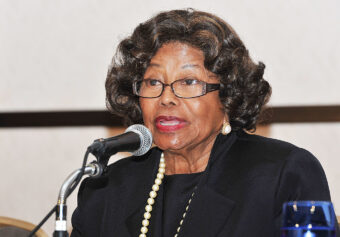By Jeff Green
A year-and-a-half into a pandemic, leaders are gathering at the two-day Bloomberg Equality Summit to take stock of the damage to the global economy and chart a way forward toward greater equality for all.
Former Citigroup Inc. executive and New York City mayoral candidate Ray McGuire called out banks for lack of representation for women and minorities. One of London’s hottest chefs, Asma Khan, said sexism almost kept her from opening her popular new location.

Recently, executives gave their perspective on LGBTQ rights, ways to get more diversity in the Wall Street pipeline, and the dominance of White men in Crypto.
Only a Fraction of VC Money Is Going to Diverse Founders — Despite Promises
Despite a push to get more money to a more diverse group of venture capitalists following the murder of George Floyd, “there’s only been a fraction of those commitments that have actually made it into the hands of the populations that were selected,” said Pippa Lamb, a partner at Sweet Capital, an investment fund.
In fact, Lamb says that the slice of the pie going to diverse funds has shrunk. “We’ve had almost record numbers of funding across the board. Yet, the slice of funding that has gone to minority founders via people of color or female founders has actually decreased.”
Kathryn Finney, who is chief executive and founder of Genius Guild and a partner at the Greenhouse Fund, said the central question is whether “this is a moment or is it a kind of a movement?”
The figures are even worse in Europe, where 92% of investments go to all male teams and 83% of founders are White.
One of England’s Best Chefs Says Bias Kept Her From Finding New Location
Asma Khan is revered around the world for her exemplary Indian home cooking at Darjeeling Express in London; a starring role in the Netflix series “Chef’s Table” further raised her profile.
Yet the chef and owner reveals that despite her success, she still faced discrimination when she moved her restaurant to its current Covent Garden location. “It took a global pandemic. It needed men to fail, for a landlord to get back to me and say, ‘we have a lot of properties, would you be interested in seeing one?’” she said. Khan is not alone in facing sexism in the culinary world: In 2019, women made up only about a quarter of chefs and head chefs, and made an average of $28,270 a year— $10,000 less than men.
Chevron Saw Surge in Employee Requests for Mental Health Services Last Year
Outreach for Chevron’s in-house Employee Assistance Program (EAP) more than doubled in 2020, said Chevron Vice President and Chief Human Resources Officer Rhonda Morris. Employees who move from different geographic locations within the company sought out the EAP team 145% more in 2020 than they did in 2019, she said. Those rates have leveled off since lockdowns lifted and vaccines rolled out, Morris said.
She also said Chevron relied heavily on teletherapy during the pandemic to supplement employees’ increased demand for therapists. The relaxation of telehealth regulations, Morris said, allowed more workers to access care, particularly with mental health professionals in short supply.
Older Women in Particular Are Slow to Return to Workforce: LinkedIn Data
LinkedIn’s data has found that women are slowly starting to come back to the workforce, but older women are having less success, said Karin Kimbrough, chief economist at LinkedIn. The data suggests that’s partly because they fared better, overall, than younger women with small children, but also because of health and safety concerns. Almost 70% of jobless women over 40 were long-term unemployed as of September, according to a recent AARP study.
Still, the child care crisis continues to weigh on the ability of women to return, said Christopher Rauh, an assistant professor at the University of Cambridge. Families still lack the availability of good day care, he said. “There are long waiting lists and access is even more unequal in the U.S. and U.K.,” Rauh said. “The pubs opened before the schools. We’re still a long a way from improvement.”
Global Gender Pay Gap Is Worse Than We Know (10:37 a.m. NY)
Women are still well behind men globally in pay, but in many countries the gap is probably much worse than official measurements because data doesn’t capture low-paid domestic work, said Rosalia Vazquez-Alvarez, a wage specialist for the International Labour Organization. After narrowing for decades, the gender pay gap has held steady since the early 1990s, she said. A Bloomberg analysis found that even in major cities where women have more equality, they are still unsafe and under-represented in the highest paying fields.
The gender pay gap across the world prior to Covid-19 was about 20%, but it’s expected to close more quickly in countries where companies are required to report gender pay data on their workforce or otherwise improve transparency, such as the U.K., Switzerland, and Germany, Vazquez-Alvarez said.
Former Citigroup Inc. Exec Ray McGuire Blasts Banks for Racial Inequality in Workforce
The private sector still has “miles to go” in addressing racial equity, Ray McGuire, former NYC mayoral candidate and ex-chairman of Citigroup said.
“I look at the representation, the demographic ratio, gender representation in the financial services industry at large, it still has enormous work to do,” McGuire said. “Private sector can’t sit on the sidelines. Acquiescence and complicity is not acceptable in a world where we’re facing two existential crises, climate and wealth gap. The private sector cannot abdicate its responsibility.”
There’s a business imperative for organizations to rethink their workforce, said Ryan Williams, chief executive officer of Cadre. He suggested tying compensation and incentives to diversity goals to hold businesses more accountable in increasing equity in their workplaces.
ESG Needs to Be ‘Disrupted’ to Focus More on Social Issues
Environmental, social and governance investing is placing too much emphasis on environmental concerns compared with social issues and corporate leaders need to step up their efforts, said Laura W. Murphy, a pioneer of corporate civil rights audits.
“The CEOs and the boards of directors need to be held responsible for all of the components of ESG,” said Murphy, president of Laura Murphy & Associates. “And we’re talking more than diversity and inclusion when it comes to race, we’re talking about making sure your products are not harming people.”
Murphy added companies that did civil rights audits such as Starbucks Corp. and Airbnb Inc. didn’t see their profitability suffer as a result of doing the analysis.
Environmental, social and governance investing needs to be disrupted to have a greater social impact, agreed Barbara Ann Bernard, founder of Wincrest Capital.
“I believe in ESG 2.0,” she said. “ESG 2.0 is about materiality and authenticity. ESG 1.0 was either investing in low-carbon tech companies or the index hugging just slightly, overweight tech.”
A Boom in Corporate Donations to Asian American and Pacific Islander Groups
A renewed focus on fighting hate and discrimination against Asian Americans has pushed funding for AAPI groups to $1.1 billion over the next decade, said Jerry Yang, co-founder of Yahoo!, who sits on the board of the recently formed Asian American Foundation.
That’s a big boost from the past five years, when donations to those groups was less than 1% of overall giving from foundations, corporations and philanthropic organizations, he said.
Anti-Asian hate crimes spiked 73% last year, well above the overall 13% increase in hate crimes overall, according to new data from the U.S. Federal Bureau of Investigation.
“People generally don’t think that the AAPI Community are underserved,” Yang said. “But the reality is that while there are a number of Asian Americans across the United States who are doing very well, there are still vast number that are in poverty.”
The billion dollars still lags, when compared to how much companies give to other causes. A Bloomberg News survey of the 100 largest public U.S. companies found that pledges in the wake of the murder of George Floyd to address Black inequity now surpass $11 billion. Those companies said they spent about $1.5 billion last year in response to the unrest and demands for action.
The foundation is trying to gather more robust data and is running pilot centers in New York, Chicago and Oakland, California to study discrimination and ways to mitigate it, said Sonal Shah, president of the Asian American Foundation.
The foundation is also urging companies to pay more attention to their Asian workers, who are lagging in promotions and advancement even as the public considers Asian Americans to out-perform other racial and ethnic groups. Bank of America Corp., McKinsey & Co. and Zoom Video Communications Inc. are all partnering with the foundation to address issues affecting Asian Americans, Shah said.
More stories like this are available on bloomberg.com




